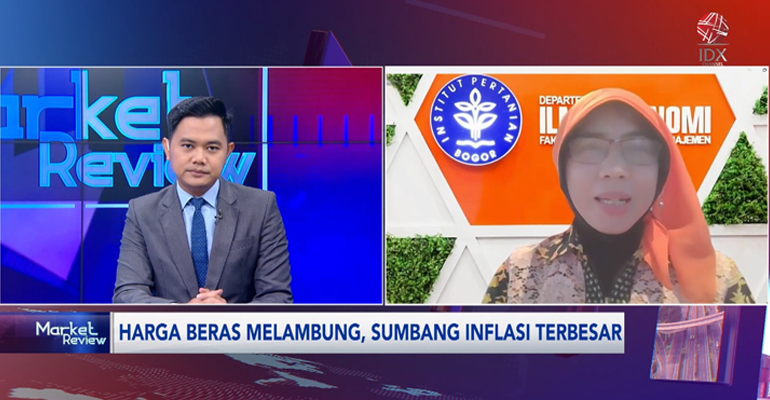IPB University Lecturer Highlights Soaring Rice Prices in Indonesia

Dr Sahara, a lecturer at IPB University and an economic observer, has stated that the phenomenon of rising rice prices has been occurring for several months. This has been exacerbated by a climate crisis caused by El Nino leading to a decrease in domestic rice production.
Furthermore, Dr Sahara mentioned that from July to September 2023, rice production has decreased by approximately four percent compared to the previous period. She also mentioned that Trading Economics has projected volatile food inflation in Indonesia to reach three percent by the end of this quarter.
Meanwhile, on a global level, the increase in rice prices is a result of India’s policy to restrict imports in order to secure rice stocks after floods.
“The combination of these two factors, domestic production decline and rice price increases at the international level, contributes to the rising rice prices in Indonesia, which is also a staple commodity and a major contributor to inflation,” Dr Sahara explained during the IDX Channel Market Revie, 4/9.
The IPB University’s lecturer from the Department of Economics explained that one way to secure domestic rice stock reserves and maintain rice price stability is through rice imports by Bulog. She emphasized that the availability of rice must be closely monitored as there will be fierce competition for rice import quotas from Thailand and Vietnam, among other countries.
“I am optimistic that the shortage of rice import quotas, totaling 400 thousand, can be realized by Bulog because Indonesia has been a long standing partner of both rice exporting countries. Bulog’s negotiating ability on behalf of the government is crucial in this regard,” said Dr Sahara.
She predicted that rice price increases will continue as India is holding back its rice stocks. Market forces, according to him, will come into play because global rice demand is very high while the availability of rice in the global market is relatively limited.
“This will lead to rice price increases, especially since Indonesia is already experiencing drought, which is expected to last for quite some time. BMKG predicts low rainfall in several regions of Indonesia, including rice producing areas,” she added. (MW/ra) (IAAS/DSR)



